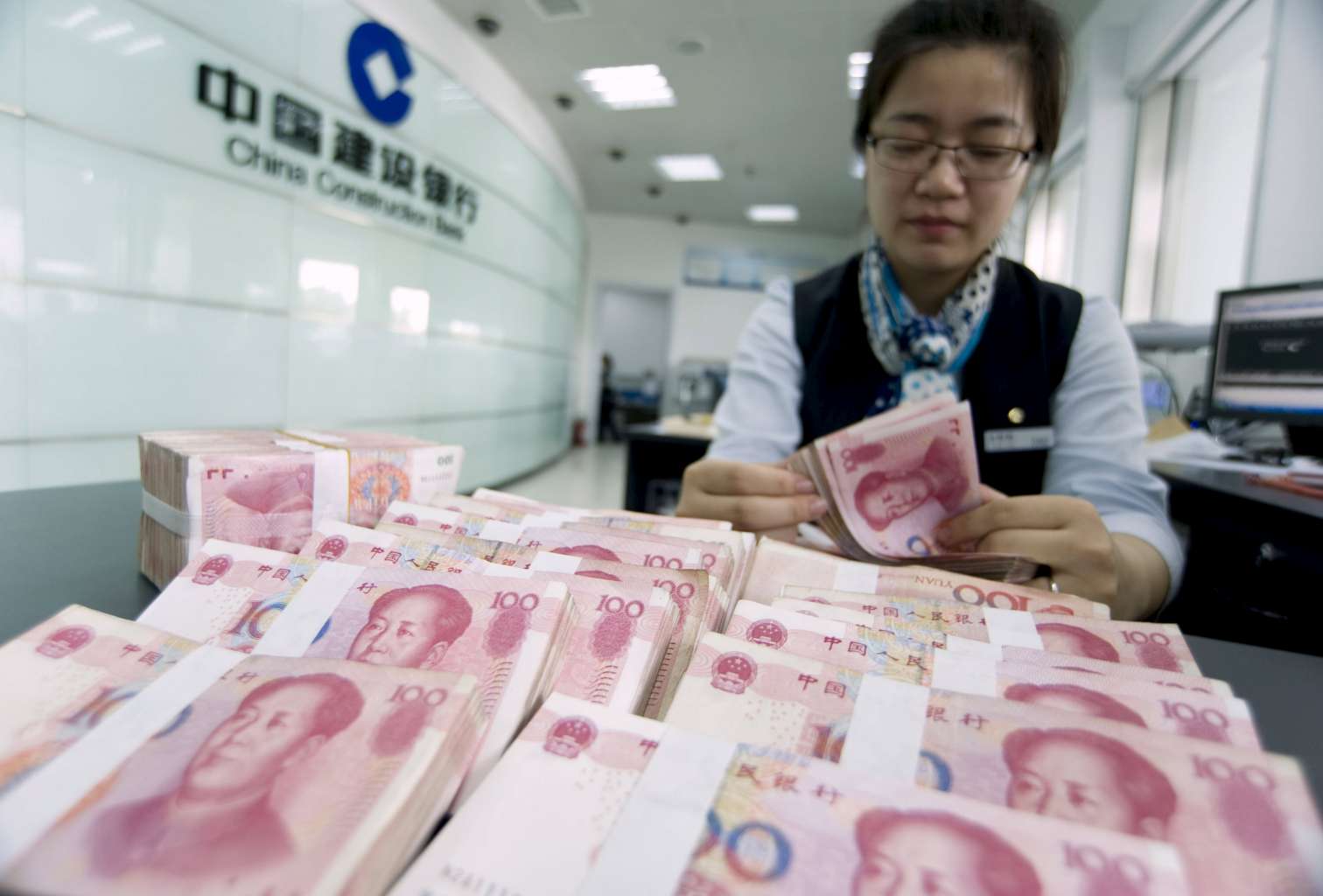China starts cross-border yuan payment system to lift usage of the currency
Sign up now: Get ST's newsletters delivered to your inbox

A clerk counting Chinese 100 yuan banknotes at a branch of China Construction Bank in Hai'an, Jiangsu province.
PHOTO: REUTERS
Follow topic:
HONG KONG (Bloomberg News) - China has started a payment system for cross-border yuan transactions, part of the nation's plan to bolster the currency's global usage and win reserve status from the International Monetary Fund.
The People's Bank of China on Thursday initiated the first phase of the China International Payment System, which provides clearing and settlement services, it said in a statement on its website. Some 19 lenders including Industrial & Commercial Bank of China Ltd. and HSBC Holdings Plc's subsidiary in China are directly participating, the PBOC said.
China wants to make the yuan more "freely usable" in global trade and finance to support its bid to be included in the IMF's Special Drawing Rights basket along with the dollar, euro, yen and pound. The yuan overtook the yen to become the world's fourth most-used global payments currency in August, shrugging off a surprise devaluation that month.
"The new system provides an additional choice for cross- border yuan trades and hence helps the currency's internationalisation," said Kera Kong, a strategy planner at BOC Hong Kong Holding. "The growth of yuan usage in Asia Pacific has been very fast, which will also bolster yuan transactions in Europe and Americas." The payment system operates from 9 a.m. to 8 p.m. in Beijing, Xinhua News reported Thursday, citing the PBOC. The real-time yuan settlement platform in Hong Kong, which processed a record 21.8 trillion yuan (US$3.4 trillion) of transactions in August, runs from 8:30 a.m. to 5 a.m. the next day. The city had 979 billion yuan of deposits at the end of August, the world's biggest stockpile outside of China.
Standard Chartered Plc's China unit completed a yuan clearing transaction using the new cross-border payment system from China to Luxembourg for the Swedish retailer IKEA Ltd., the bank said in a statement on Thursday.
"The launch of CIPS means more trades between China and its partners will be denominated in the yuan," said Kenix Lai, a foreign-exchange analyst at Bank of East Asia Ltd. in Hong Kong. "Hong Kong is still competitive in the offshore yuan business given its proximity to China and established infrastructure. It can benefit from the bigger yuan market that CIPS facilitates."

